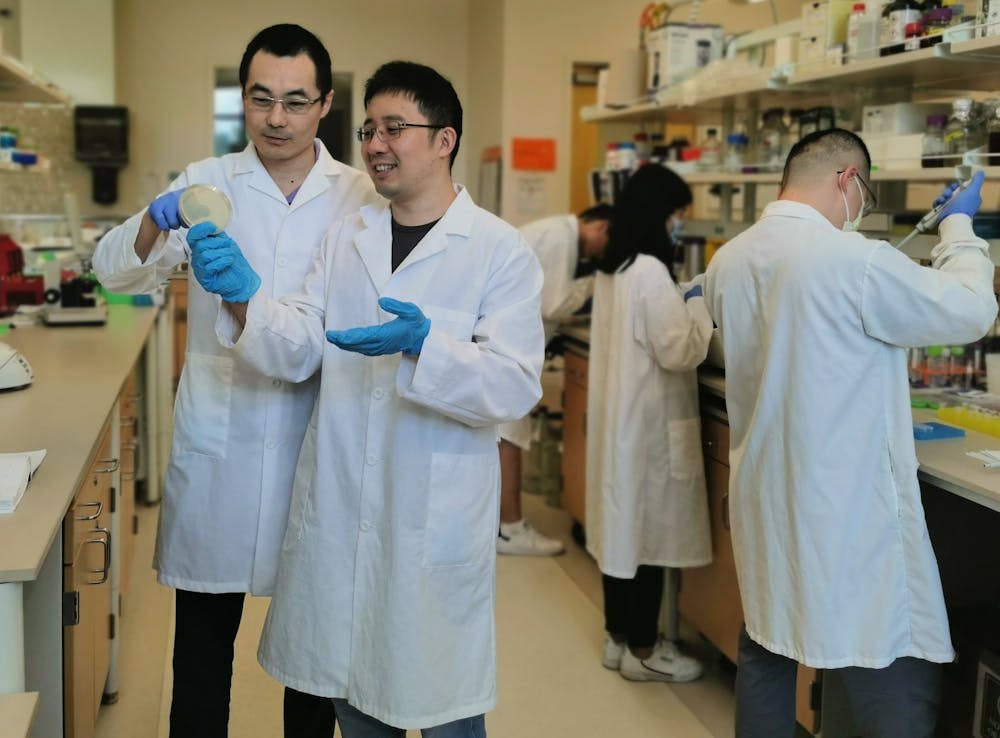An Auburn-led research team has made a breakthrough in biofuel and biochemical production. The team, led by Yi Wang, developed a process to produce fatty acid esters at unprecedented levels.
Wang and his team are dedicated to the goal of making the world a better place, he said.
“From the time I was a young child, I decided to work in the future to make the Earth a better place to live,” Wang said. “Besides becoming a good researcher, I am also interested to use my knowledge to educate and train the next generation of professionals.”
Work began on the project in early 2017 and quickly became backed by a $2 million U.S. Department of Energy award in 2018 due to the project’s potential. They have now been working on the project for almost four years and are nearing industry production stages.
Fatty acid esters are naturally occurring compounds in fruits, which produce fruit's sweet aroma. They are typically used as artificial flavorings in the food and cosmetics industries. However, in this project, Wang’s team has a different goal in mind for the esters.
“The organic compound esters can be blended into gasoline, diesel and even jet fuel to improve the burning properties of the fuels,” Wang said. “We can produce these esters, blend them into diesel, and in the future trucks on the roads can have reduced pollutants.”
The fatty acid esters reduce the pollutants emitted by making petrochemical fuels burn more completely. The environmental impact of reducing the pollutants emitted by diesel trucks would be a substantial leap in the right direction of saving the environment.
The production of the esters is environmentally friendly, as well. They chose to engineer non-pathogenic Clostridium bacterial strains known for their ability to produce building blocks that could be used for ester synthesis.
Clostridium strains are commonly found in pathogens that are responsible for diarrhea and disease, but there are non-pathogenic strains that have other uses.
“They can convert organic waste streams into environmentally friendly bio-products,” Wang said.
In addition, this environmentally friendly production of fatty acid esters is economically sound.
“We made a calculation that if we produce one metric ton of this ester, the production cost stays about $900, while the market price of this product now is $1200 to $1600,” Wang said. “We are still doing further metabolic engineering work to improve the strain and also optimizing the biological process to make the ester production more cost-competitive”.
Dr. Wang's team is a group of researchers that try to use new technologies to address the pressing issues related to energy, environment, agriculture and human health through the engineering of biological systems.
"We always welcome young researchers who are interested in this area to join us to make our earth more beautiful and a better place to live," Wang said. "We are interested in working with the relevant industry people to bring our lab-scale research and technology into the larger-scale industry scene.”
Do you like this story? The Plainsman doesn't accept money from tuition or student fees, and we don't charge a subscription fee. But you can donate to support The Plainsman.
Ethan Stamper, journalism major, is the campus reporter for The Auburn Plainsman.





